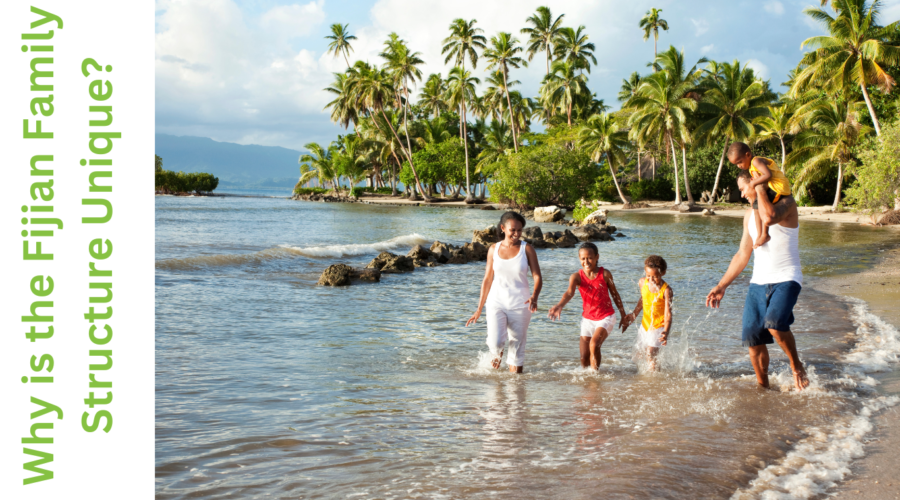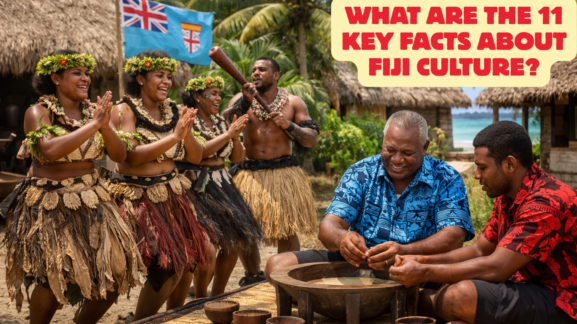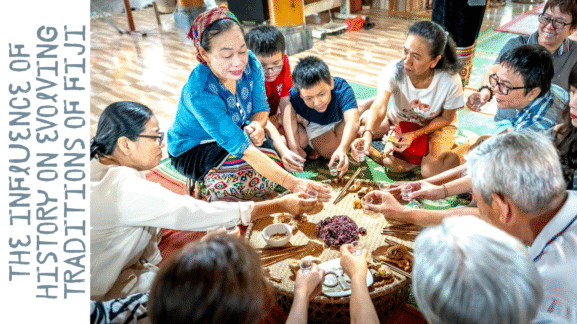Why is the Fijian Family Structure Unique?
Fijian family structure is defined as a multiplex of relations, cultures, and beliefs about the rights and wrongs in a society. Fijian culture is specific to the island and has taken centuries of development.
In Fiji, the family goes beyond a group of narrowly related people by blood. It covers households with grandparents, aunts, uncles, and cousins who are considered important family members. The relationships offer protection and thus give the individual a place they belong.
Fiji has one of the most vigorous family values of all the cultures across the world. It defines the person and controls interactions and events in society. Family members assist each other in several ways, be it in celebrations or in difficult times of their lives.
Historical Context
Ancient Fijian Society
The social structure of Fijians comprised of smaller units which can be translated as tribes or clans. Every tribe also has its own land and resource owner. This type of cohesive living made everyone and everything strong enough to survive and be productive.
The family is very important to the Fiji people. Women particularly are valued for their age and normally whoever is older is the one to make decisions in the family. Values mentioned were respect and community and they described relations between families or how families should be.
The Influence of Colonialism
Colonialism brought lots of changes within the region. Their arrival brought new concepts and ways of operation within their assemblies.
The colonizers affected the aspects of land and family. Thus, families started to get differentiated, especially by the adoption of cash crop economies. Males headed a plantation while females were the ones to provide for the upkeep of the home and children. This division of labour was seen to affect how families operated.
Modern Changes and Resilience
Fijian family organization has received changes in recent years as well. These factors have affected the place where families live and the way they live. Due to employment and studies, many youths migrate to cities changing the family structure. But support is still observed and valued in a similar way as before.
Core Family Units
The structure of Fijian families is complex and varied, but the focal ones are the nuclear families. These units have significant utility and functionality in the lives of Fijians and are instrumental in molding the culture of Fiji.
A core family can be a mother, a father and their children. But here it is necessary to note that ‘Family’ concerns not only this group. The Fijian family structure is a little broader because close relatives in the large family are also involved in raising the children.
The importance of an extended family
Family members’ interdependence is a common feature in Fiji and many individuals have large families. This is a family structure with grandparents, aunts, uncles as well as cousins in a single family. It also allows the kind of closeness that offers emotional and/or financial support.
Status of Core Family Units
There is a specifically assigned role and duty for each member of the core family unit. As has always been the role portrayed in most families, the father is primarily responsible for earning a living. They practice their professions outside the home in a bid to contribute to family income. While fathers are normally providers of the family income, mothers are normally expected to supervise the home and look after the children. However, there distinctions may exist.
In many families of the present generation, both parents get engaged in a paid job or employment. They make some adjustments in sharing the chores relevant to the home and or children over which everyone gains more responsibility.
Family Values and Support
The base of the Fijian family is built on positive ethics, principles, and values such as respect, love, and care. People gather during meals and other special occasions to celebrate events and other incidents.
Extended Family Dynamics
The Role of Extended Families
Families can also be compared to a large support group. Living in one or even nearby is not strange in Fiji because there is a tradition where many generations live closely. The living arrangements enable parents or other family members to assist each other daily.
The children are often taken care of by grandparents when parents go to work. Aunts and uncles provide education and teach life lessons. This sharing brings about the unity of families and acquires good relationships with all the members of the family.
The importance of Love, care and Counselling
Fijian families are large, and they both give emotional support and impart wisdom to the family members. Family celebrations are often unique. It’s at this time that many people sit and listen to stories and anecdotes, respect cultural practices, and crack jokes.
Financial Assistance and Simply Support
Many individuals in an extended family pull one another through hard times. There are cases when a family has to pay medical bills or needs someone to help them with carrying out their daily needs – these are the moments when relatives help out.
Such cooperative help or security lets no one feel sad when things get rough. It also assists families to combine resources to achieve similar objectives which are likely to be purchasing a house or educating their children.
Fiji’s culture is based in large part on extended families. Traditionally, families come together to celebrate various occasions by singing and dancing with lots of tasty food. Joyous occasions such as weddings, birthdays, and festivals are what pull everyone close and allow people to make and cherish memories.
Living Arrangements and Housing
Living patterns are very important among Fijian families to determine family life. Families as social units provide for, and share duties.
Traditional Housing
Bure is a native house for many Fijian families, where they live. These are round and small huts constructed with local materials including wood, bamboo, and palm leaf.
Urban vs. Rural Housing
Housing structures can be different in different areas. Self-contained homes are found, in the rural setting, families dwelling in traditional bures or simple houses with adequate compound space. These homes are usually close neighbourhoods, and people living in these homes know each other very closely.
That is, whereas the urban setting has 3-roomed houses, the urban has modern apartments or better houses.
Impact of Modernization
It is so apparent that recent trends have affected the way some Fijian families dwell. Owning simple houses with greater privacy is becoming popular in many families as they mimic Western-style homes. Although this may be reassuring, it can also result in minimal contact with other members of the family as well as neighbours. Conflict between old and new ways of life remains an issue of interest for the Fijians who are finding it hard to determine how to live a modern life.
The Fijian family structure is a rich blend of tradition, community, and shared values. It emphasizes the importance of both immediate and extended family members, fostering a strong support system that helps individuals thrive.
As Fijian society continues to evolve, the core values of love, respect, and unity remain steadfast. The adaptability of the Fijian family structure allows it to embrace new ideas while honouring its rich heritage. This balance ensures that family ties remain strong, nurturing the next generation in a world that is constantly changing.



